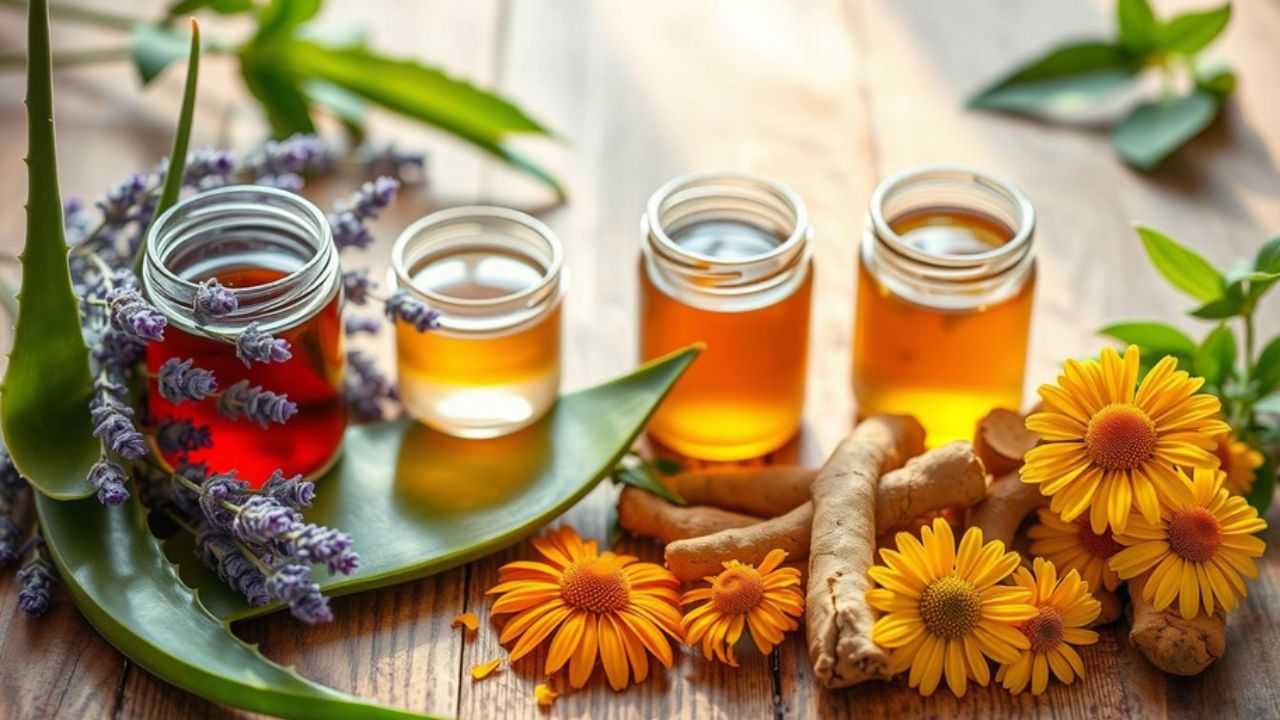In today’s blog post, we are going to explore 15 effective natural remedies to heal wounds faster. They are backed by both traditional wisdom and modern science.
In recent years, there’s been a growing interest in natural wound care methods that promise to speed up healing, reduce scarring, and prevent infections.
We’ll delve into the healing powers of substances like aloe vera and honey, and provide practical advice on how to use these natural agents to transform your wound care routine.
Understanding Wounds and Their Healing Process
Before we explore the 15 natural remedies, it’s crucial to understand different types of wounds and the stages of wound healing. This knowledge will help you choose the most appropriate treatment for your specific situation.
Types of Wounds
- Abrasions: Scrapes that remove the top layer of skin
- Lacerations: Deep cuts with jagged edges, often caused by sharp objects
- Puncture wounds: Holes made by objects piercing the skin, which can lead to infections
- Burns: Injuries caused by heat, chemicals, or electricity, ranging from mild to severe
Stages of Wound Healing
- Hemostasis: Blood clotting to stop bleeding (0-2 hours after injury)
- Inflammation: White blood cells fight off infection (1-5 days)
- Proliferation: New tissue forms and the wound begins to close (3-21 days)
- Maturation: The wound fully closes and scar tissue strengthens (21 days to 2 years)
Importance of Natural Remedies in Wound Care
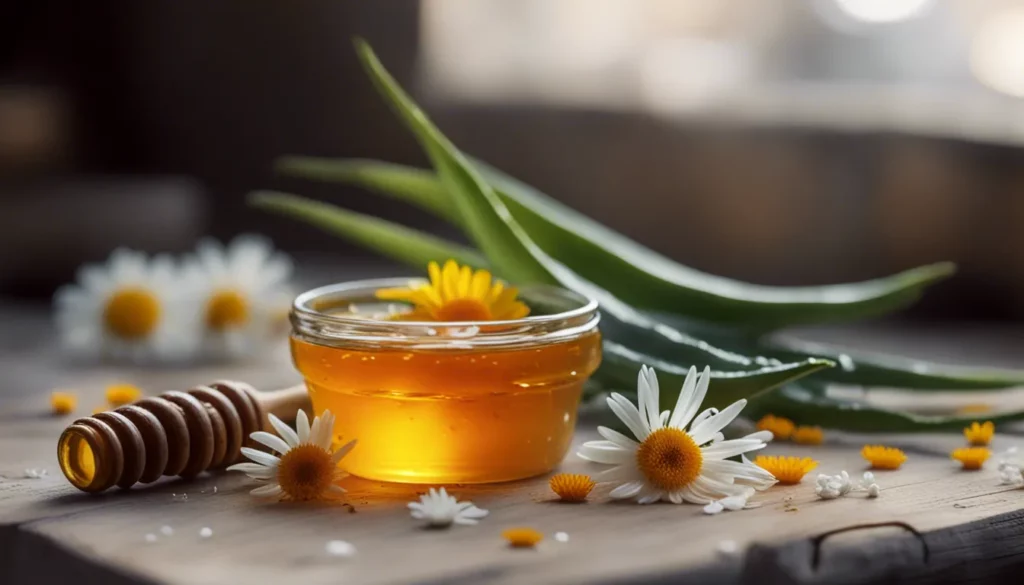
Natural remedies have been a cornerstone of human healing for thousands of years, and for good reason.
When it comes to wound care, these time-tested solutions offer a multitude of benefits that can complement or, in some cases, even replace conventional treatments.
Let’s explore why more and more people are turning to nature’s pharmacy for wound healing:
Harnessing the Body's Innate Healing Powers
One of the most significant advantages of wound healing remedies is their ability to work in harmony with your body’s inherent healing mechanisms.
Unlike some synthetic drugs that may override your body’s processes, natural remedies often support and enhance your immune system’s response to injury.
For instance, honey, a popular natural wound treatment, provides a moist environment that promotes tissue regeneration while also offering antimicrobial properties.
Gentler on Your System
Many people find that natural wound care solutions are kinder to their bodies compared to pharmaceutical options. This gentleness doesn’t mean they’re less effective, though.
Take calendula, for example. This bright orange flower yields a potent extract that reduces inflammation and promotes skin cell formation, all without the potential side effects of some over-the-counter antibiotic ointments.
Pain Relief and Infection Prevention
Natural remedies often pull double duty by both soothing pain and warding off infections.
Aloe vera, famous for its burn-soothing properties, contains compounds that reduce pain and inflammation. At the same time, it creates a protective layer over the wound, helping to prevent bacterial invasion. This dual action can make the healing process more comfortable and reduce the risk of complications.
Accessibility and Affordability
One of the most practical benefits of natural remedies is that many are readily available in your own home or garden. Pantry staples like honey and coconut oil have impressive wound-healing properties.
If you’re a gardener, you might already be growing powerful medicinal plants like comfrey or yarrow without even realizing it. This accessibility means you can often start treatment immediately, which can be crucial in the early stages of wound care.
Customizable Care
Effective natural wound treatments allow for a more personalized approach to wound healing. You can often combine different remedies to address specific needs.
For instance, you might use lavender essential oil for its antiseptic properties and stress-reducing aroma, while also applying comfrey salve to speed up cell regeneration.
Environmental Considerations
Choosing natural remedies can also be an eco-friendly decision. Many of these treatments have a lower environmental impact compared to synthetically produced medications.
By opting for natural solutions, you’re not only caring for your wound but also for the planet.
15 Natural Remedies to Heal Wounds Faster
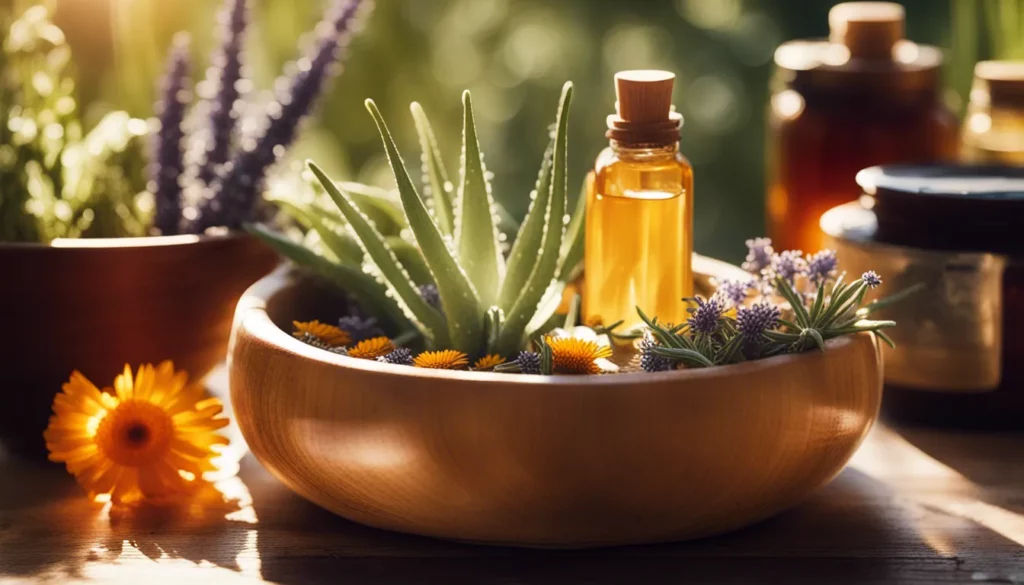
Nature has provided us with an incredible array of herbal remedies for wound healing, many of which you might already have in your kitchen or garden.
Let’s explore 15 remarkable natural remedies that can transform your approach to wound care, harnessing the power of plants and natural substances to promote healing, fight infection, and soothe pain:
1. Aloe Vera: Your Skin's Best Friend

Aloe vera isn’t just for sunburns! This succulent plant produces a gel that works wonders on minor cuts and burns. Here’s why you should keep an aloe plant on your windowsill:
- Anti-inflammatory powerhouse: Aloe vera reduces redness and swelling, helping your wound heal more comfortably.
- Natural moisturizer: It keeps your wound hydrated, which is crucial for proper healing.
- Easy to use: Simply cut open a leaf and apply the clear gel directly to your wound.
Remember to clean your wound before applying aloe vera gel, and consider covering it with a sterile bandage afterward.
2. Honey: Nature's Sweet Healer

That jar of honey in your pantry is more than just a tasty treat – it’s a potent wound-healing agent. Here’s why honey deserves a spot in your first aid kit:
- Antibacterial superhero: Honey creates an environment where bacteria can’t thrive, helping prevent infections.
- Maintains moisture: It keeps your wound hydrated, which speeds up healing and reduces scarring.]
- Promotes tissue regeneration: Honey stimulates the growth of new tissue, helping your wound close faster.
For best results, use raw, unpasteurized honey or medical-grade Manuka honey. Apply a thin layer to your clean wound and cover with a sterile dressing.
3. Turmeric: The Golden Spice of Healing
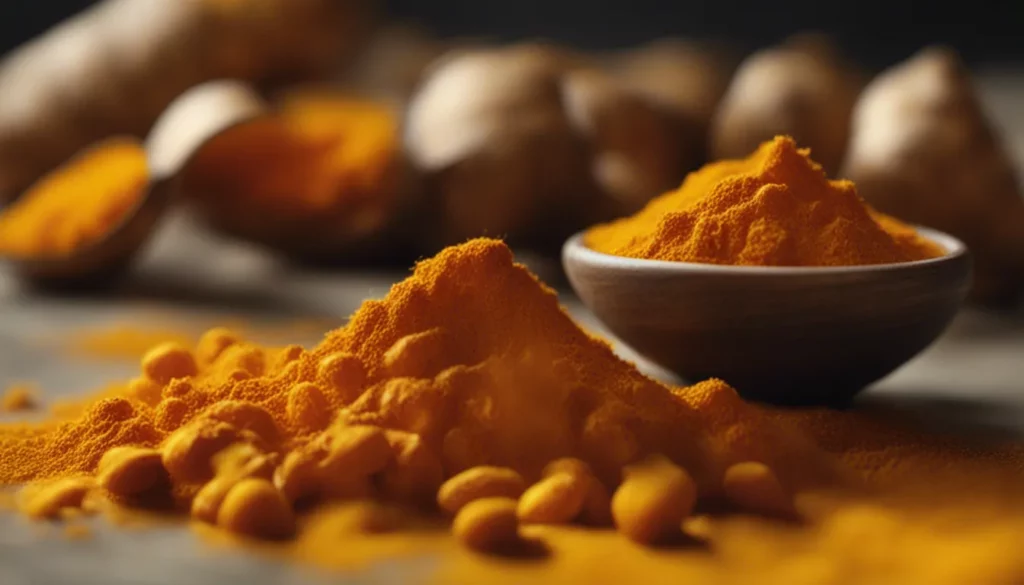
This vibrant yellow spice does more than add flavor to your curry. Turmeric contains curcumin, a compound with powerful healing properties:
- Fights infection: Curcumin has natural antiseptic qualities, helping ward off harmful bacteria.
- Reduces inflammation: It calms swelling and redness, making your healing process more comfortable.
- Accelerates healing: Turmeric can help your wounds close faster by promoting collagen production.
Try making a paste with turmeric powder and water, and apply it to minor wounds. Just be aware – it might stain your skin yellow temporarily!
4. Activated Charcoal: The Toxin Magnet
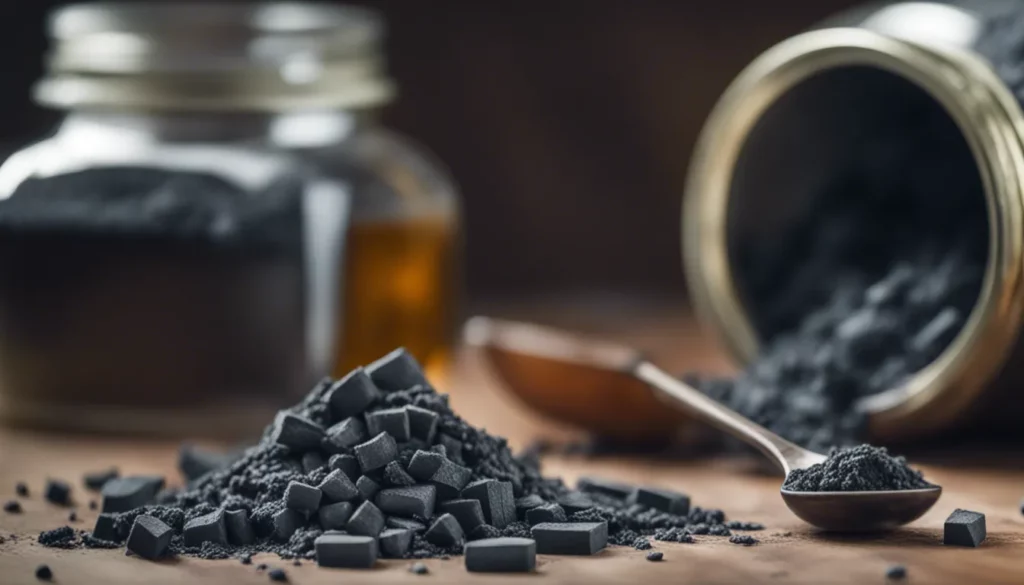
While it might seem counterintuitive to put something black on your wound, activated charcoal is a powerful healing agent:
- Absorbs toxins: It acts like a magnet, pulling out impurities from your wound.
- Fights infection: By removing harmful substances, it helps prevent and treat infections.
- Odor control: Activated charcoal can help neutralize unpleasant wound odors.
Mix activated charcoal powder with a bit of water to form a paste, apply to your wound, and cover with a bandage. It’s especially useful for infected wounds or insect bites.
5. Calendula: The Skin-Loving Flower

Don’t let its cheerful orange petals fool you – calendula is a serious player in wound healing:
- Calms inflammation: Calendula soothes irritated skin, reducing redness and swelling.
- Promotes cell growth: It stimulates the production of new skin cells, speeding up healing.
- Fights microbes: Calendula has natural antimicrobial properties, helping prevent infections.
Look for calendula-infused oils or creams, or make your own by steeping calendula flowers in olive oil. Apply to minor wounds, cuts, or scrapes.
6. Garlic: Nature's Antibiotic
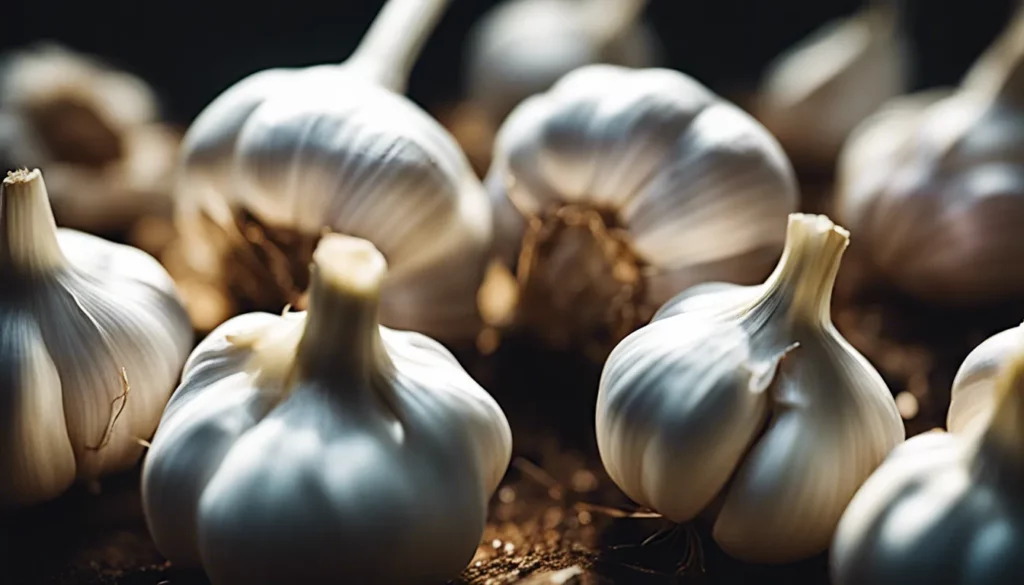
This pungent bulb isn’t just for keeping vampires away – it’s a potent natural antibiotic:
- Broad-spectrum antimicrobial: Garlic fights bacteria, fungi, and even some viruses.
- Boosts immune function: It can help your body’s natural defenses work more effectively.
- Promotes healing: Garlic stimulates the formation of new tissue.
Crush a clove of fresh garlic and mix it with a little coconut oil. Apply this mixture to your wound, but be prepared – it might sting a bit!
7. Coconut Oil: Moisturize and Protect
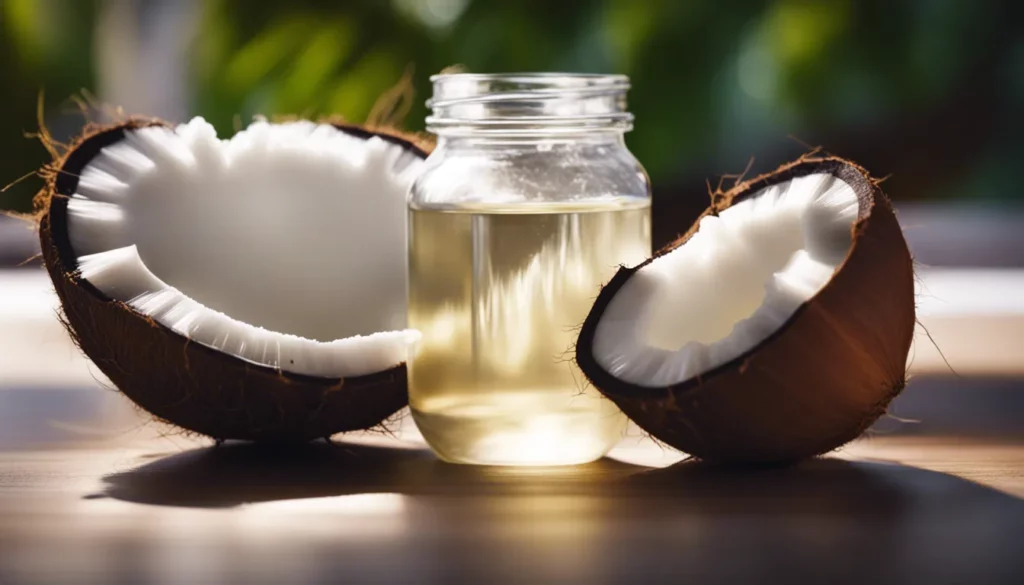
This versatile oil does more than make your baked goods delicious. When it comes to wound care, coconut oil shines:
- Natural moisturizer: It keeps your wound hydrated, which is essential for proper healing.
- Creates a protective barrier: Coconut oil forms a shield against external contaminants.
- Antimicrobial properties: It helps prevent infections with its natural germ-fighting abilities.
Apply a thin layer of virgin coconut oil to your clean wound. It’s especially useful for dry or chapped skin.
8. Chamomile: Soothing and Calming

This gentle herb isn’t just for bedtime tea – it’s a powerful wound healer:
- Pain relief: Chamomile has natural analgesic properties to ease discomfort.
- Anti-inflammatory: It reduces swelling and redness around your wound.
- Promotes relaxation: The calming scent of chamomile can help reduce stress, which is beneficial for overall healing.
Make a strong chamomile tea, let it cool, and use it to clean your wound. You can also apply cooled tea bags directly to the affected area.
9. Comfrey: The Bone Knitter

Also known as “knitbone,” comfrey has been used for centuries to heal injuries:
- Promotes cell regeneration: Comfrey stimulates the production of new skin cells.
- Reduces swelling: It helps calm inflammation around your wound.
- Soothes pain: Comfrey can help alleviate discomfort associated with wounds and bruises.
Look for comfrey-infused creams or oils, but avoid using it on deep wounds or for prolonged periods, as it can be toxic if absorbed in large amounts.
10. Essential Oils: Lavender and Tea Tree
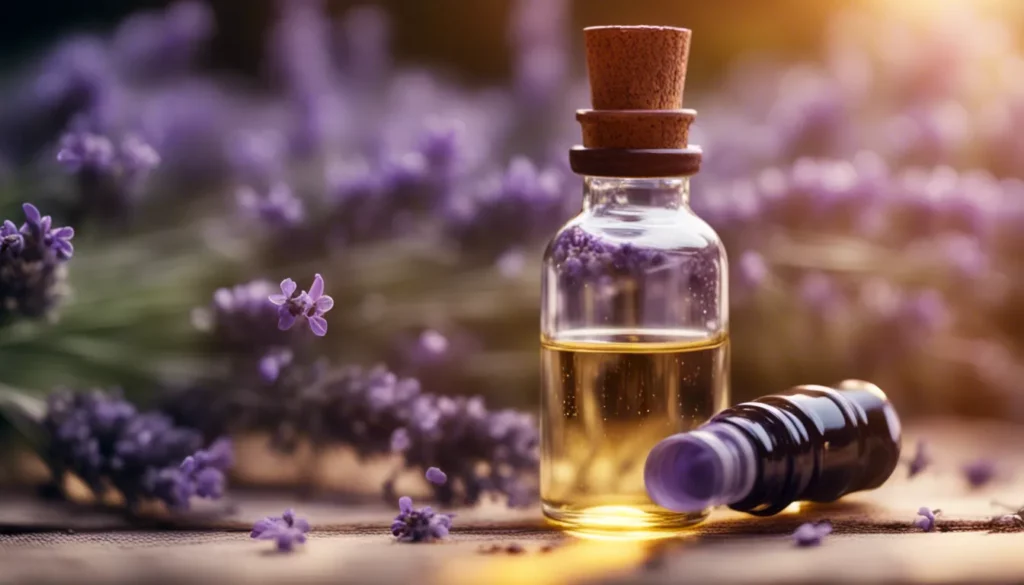
These potent plant extracts pack a powerful healing punch:
- Lavender: Soothes skin, reduces pain, and has antimicrobial properties.
- Tea Tree: A strong natural antiseptic that fights bacteria and fungi.
Always dilute essential oils with a carrier oil like coconut or jojoba before applying to your skin. A few drops in your wound-cleaning solution can boost its effectiveness.
11. Cinnamon: Spice Up Your Healing

This warm, aromatic spice does more than flavor your latte:
- Antimicrobial powerhouse: Cinnamon fights off a wide range of harmful microorganisms.
- Improves circulation: Better blood flow to your wound means faster healing.
- Anti-inflammatory: It helps reduce swelling and discomfort.
Mix a small amount of cinnamon powder with honey to create a healing paste. Apply to minor wounds, but avoid using on large or deep injuries.
12. Clove Oil: Nature's Painkiller
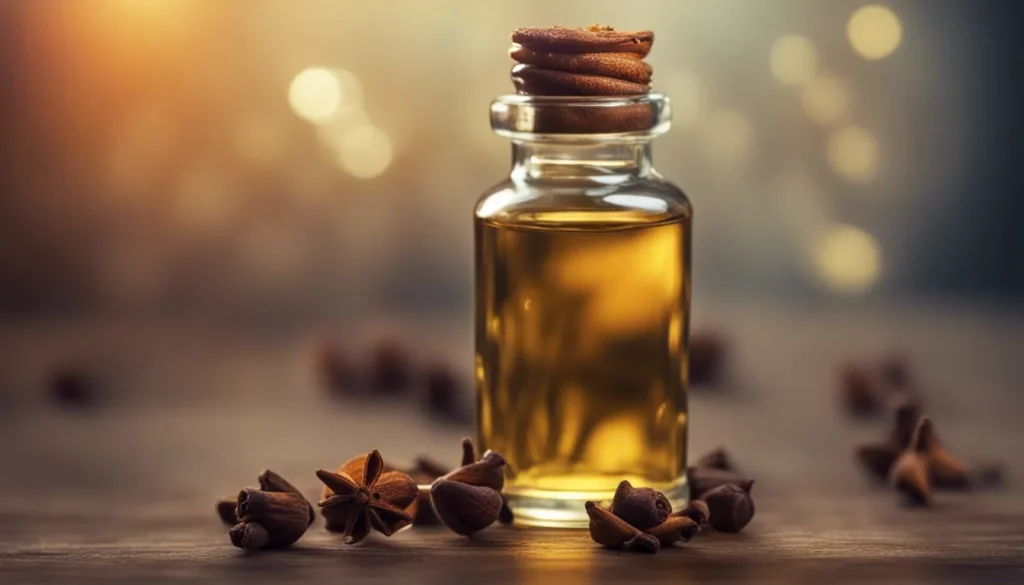
Clove oil has been used for centuries in dental care, but its benefits extend to wound healing:
- Natural anesthetic: Clove oil can numb pain, making wound care more comfortable.
- Antimicrobial properties: It helps prevent infections in your healing wound.
- Promotes circulation: Improved blood flow aids in faster healing.
Dilute clove oil with a carrier oil before applying to your skin, as it can be irritating in its pure form.
13. Apple Cider Vinegar: Clean and Protect
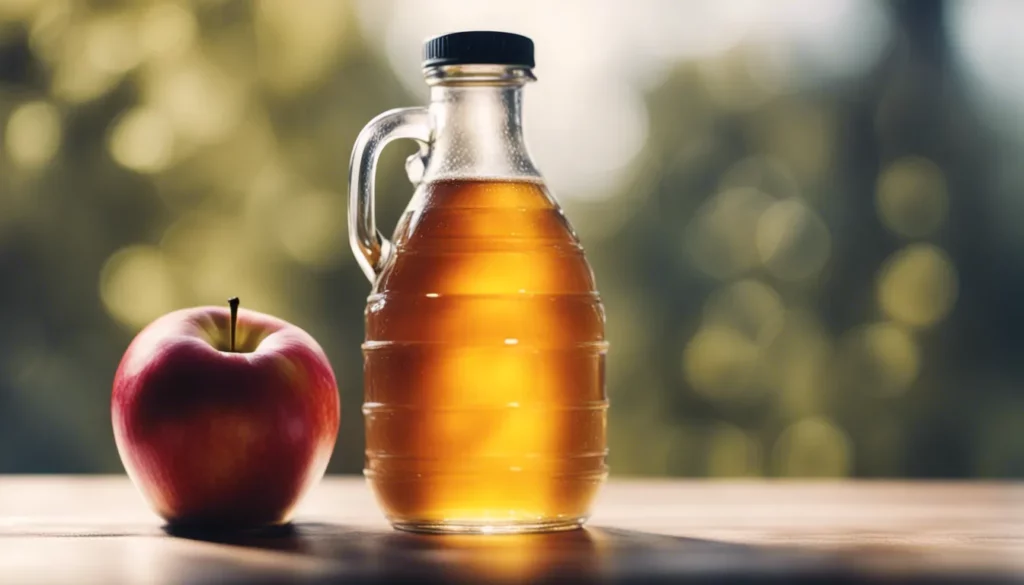
This kitchen staple is a powerful ally in wound care:
- Natural disinfectant: Apple cider vinegar helps clean wounds and prevent infections.
- Balances skin pH: It creates an environment unfavorable to harmful bacteria.
- Promotes healing: The acetic acid in vinegar can stimulate blood flow to the wound area.
Dilute apple cider vinegar with water (1:1 ratio) and use it to clean your wound. Don’t apply it directly to open wounds, as it may sting.
14. Gotu Kola: The Ancient Healer

This herb has been used in traditional medicine for thousands of years:
- Enhances collagen production: Gotu kola helps your skin rebuild itself more effectively.
- Improves circulation: Better blood flow means more nutrients reach your healing wound.
- Reduces scarring: It can help minimize the appearance of scars as your wound heals.
Look for gotu kola in creams or take it as a supplement (after consulting with your healthcare provider) to support overall wound healing.
15. Yarrow: The Warrior's Wound Healer

Yarrow has a long history of use on the battlefield for good reason:
- Stops bleeding: It helps blood clot more quickly, stemming the flow from cuts and scrapes.
- Antiseptic properties: Yarrow helps prevent infections in open wounds.
- Reduces inflammation: It calms swelling and promotes faster healing.
You can apply yarrow leaves directly to a wound to stop bleeding, or use yarrow-infused oil for general wound care.
Best Practices for Using Natural Remedies
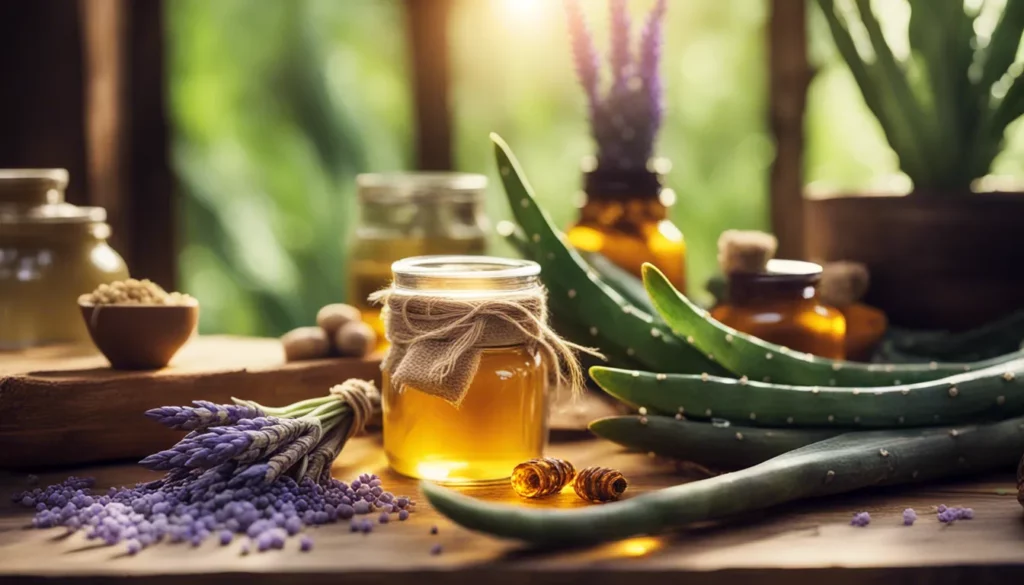
Using natural remedies for wound care needs careful attention. You must follow recommended practices for safe application. Cleanliness and proper application are key for effective treatment. Always wash your hands before handling any remedy.
How to Apply Natural Remedies
Begin by cleaning the wound with mild soap and water. Dry the area with a clean towel. Use sterile gauze or a clean cotton ball for substances like honey or aloe vera.
Apply the remedy evenly but avoid too much pressure. This can cause irritation.
Precautions to Take
Watch for allergic reactions when using natural remedies. Always do a patch test on a small area of skin first. Be cautious of interactions with other treatments, like medications for skin conditions.
Check the wound’s severity. If it shows signs of infection or doesn’t heal in a few days, see a healthcare professional. Following these practices supports healing and reduces risks.
Conclusion
As we wrap up our talk on natural remedies for healing wounds, it’s clear there are many effective options. From aloe vera to yarrow, each remedy shows how nature can help us heal. This approach to healing is all about using natural ways to get better.
Using these remedies in your daily routine can help manage wounds and boost your overall health. It’s important to remember that while natural remedies are helpful, you should also talk to doctors. This way, you get the best care possible.
Start using these natural remedies to help your wounds heal faster and better. This will make your recovery journey more effective and deepen your understanding of holistic health. Making informed choices that work with medical advice will enrich your healing experience.

